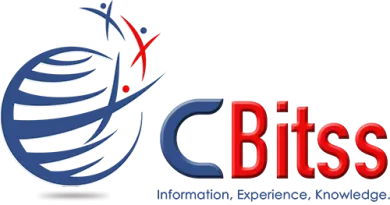Navigating Data Lakes: Bangalore’s Approach to Analytics
Introduction
Bangalore, a hub for technology and innovation, has developed sophisticated approaches to navigating data lakes for analytics purposes. Innovation, learning, adoption, and leading are the hallmarks of Bangalore’s technology ecosystem. Most learning centres in Bangalore have a pool of mentors who are well aware of the emerging technology trends and also follow a course curriculum that is updated frequently to impart the latest learning. Thus, a technical course such as a Data Analytics Course in Bangalore is highly valued across the country.
Bangalore’s Approach to Data Analytics
Here are some key aspects of Bangalore’s approach. Which is indicative of its focus on the emerging trends in data analytics:
Data Integration and Ingestion:
Bangalore’s analytics strategy begins with robust data integration and ingestion processes. Various sources of data, including structured, and semi-structured. Unstructured data are collected from disparate systems and ingested into the data lake. This involves using technologies such as Apache Kafka, Apache NiFi, or custom-built ETL pipelines to ensure data is cleansed. Transformed, and loaded efficiently.
Scalable Storage Infrastructure:
Bangalore’s approach emphasises the importance of scalable storage infrastructure to accommodate the vast volumes of data generated by diverse sources. Technologies like Hadoop Distributed File System (HDFS), Amazon S3, or Azure Data Lake Storage are commonly used to store data in a cost-effective and scalable manner. Managing data is becoming increasingly complex as the volume of accessible data is continuously on the rise and data is spread across multiple datasets. The ability to handle large volumes of data is a must-skill for data analysts and any Data Analytics Course will offer extensive coverage on this topic.
Data Governance and Metadata Management:
Data governance is a critical component of Bangalore’s analytics strategy. Policies and processes are established to ensure data quality, security, and compliance with regulations. Metadata management solutions are implemented to catalogue and annotate data assets within the data lake. Enabling easy discovery and understanding of available data sets.
Advanced Analytics and Machine Learning:
Bangalore leverages advanced analytics and machine learning techniques to derive insights from the data lake. Data scientists and analysts utilise tools such as Apache Spark, and TensorFlow. Or PyTorch to build and deploy predictive models for various use cases. Including customer segmentation, fraud detection, and demand forecasting. Advanced and up-to-date courses for data analysts need to cover machine learning tools in detail—any Data Analytics Course in Bangalore. Would meet this criteria as it includes extensive conceptual and practical training in machine learning.
Data Visualisation and Reporting:
To make insights accessible to a broader audience, Bangalore invests in data visualisation and reporting tools. Solutions like Tableau, Power BI, or Apache Superset are used to create interactive dashboards and reports that enable stakeholders to explore data and gain actionable insights.
Real-time Analytics and Stream Processing:
In addition to batch processing, Bangalore also focuses on real-time analytics and stream processing capabilities. Technologies such as Apache Flink, Apache Kafka Streams, or Spark Streaming are employed to process and analyse data streams in near real-time, enabling timely decision-making and response to events. Real-time analytical capability is of utmost importance in applying data analysis techniques effectively, such as responding to cyber breaches proactively. Whether in Bangalore or elsewhere, learning centres that conduct a Data Analytics Course are focusing on increasing the coverage of real-time analytics in their course syllabi.
Collaborative Ecosystem:
Bangalore fosters a collaborative ecosystem where data scientists, engineers, and business stakeholders work together to extract value from the data lake. Cross-functional teams are formed to tackle complex analytics projects, with an emphasis on agility, experimentation, and continuous improvement.
Conclusion
By embracing these approaches, Bangalore effectively navigates data lakes for analytics, enabling organisations to harness the full potential of their data assets and drive innovation in various domains. An enthusiastic community of technical professionals, opportunities for learning and research, and the presence of multinational companies make Bangalore a city where new technologies are born and bred.
ExcelR – Data Science, Data Analytics Course Training in Bangalore
Address: 49, 1st Cross, 27th Main, behind Tata Motors, 1st Stage, BTM Layout, Bengaluru, Karnataka 560068
Phone: 096321 56744




